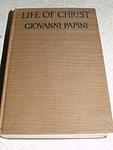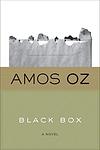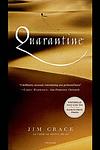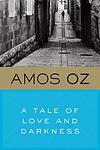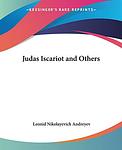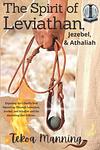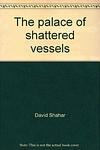The Greatest "Israel, Fiction" Books of All Time
Click to learn how this list is calculated.
This list represents a comprehensive and trusted collection of the greatest books. Developed through a specialized algorithm, it brings together 300 'best of' book lists to form a definitive guide to the world's most acclaimed books. For those interested in how these books are chosen, additional details can be found on the rankings page.
Genres
Countries
Date Range
Reading Statistics
Click the button below to see how many of these books you've read!
Download
If you're interested in downloading this list as a CSV file for use in a spreadsheet application, you can easily do so by clicking the button below. Please note that to ensure a manageable file size and faster download, the CSV will include details for only the first 500 books.
Download-
1. The Last Temptation of Christ by Nikos Kazantzakis
This novel presents an alternative interpretation of the life of Jesus Christ, who is depicted as a conflicted, all-too-human figure who struggles with his divine destiny. The book explores his journey through life, his friendships, his fears, and his ultimate temptation to avoid crucifixion and live a normal life. The narrative delves into the psychological and emotional aspects of his experiences, creating a complex, humanized portrayal of a traditionally divine figure.
-
2. Operation Shylock by Philip Roth
In this intriguing novel, the protagonist, a famous writer, travels to Israel to cover the trial of a former Nazi war criminal. While there, he encounters a man who is his doppelgänger and who has been using his fame to promote a controversial political agenda, including the idea that Jews should abandon Israel and return to Europe. The narrative explores themes of identity, Jewish history, and the complexities of the Israeli-Palestinian conflict, all while blurring the line between fiction and reality.
-
3. Life of Christ by Giovanni Papini
"Life of Christ" is a comprehensive biography of Jesus Christ, exploring his life, teachings, and impact on humanity. The book delves into the historical, cultural, and spiritual context of his era, providing in-depth analysis of his miracles, parables, and relationships with his disciples and followers. The author also examines the significance of Christ's crucifixion and resurrection, aiming to provide a thorough understanding of his life and mission.
-
4. Dawn by Elie Wiesel
"Dawn" is a poignant novel that explores the moral complexities of the aftermath of the Holocaust through the eyes of a young Holocaust survivor turned freedom fighter. He is tasked with the execution of a British officer in retribution for the British execution of a Jewish prisoner. As he awaits the dawn, the time set for the execution, he grapples with the morality of his actions, the value of life, and the haunting memories of his past. The narrative delves deep into the psychological and emotional turmoil of its protagonist, offering a profound exploration of guilt, responsibility, and the cost of violence.
-
5. The Counterlife by Philip Roth
This novel explores the idea of alternate realities through the story of two brothers, one a successful dentist and the other a famous writer. The narrative is divided into five parts, each presenting a different version of their lives. As the story progresses, the characters grapple with issues of identity, mortality, and the complex relationship between art and life. The novel is a profound examination of the choices we make and the different paths our lives could take as a result.
-
6. Gospels by Unknown
"Gospels" is a collection of four books from the New Testament of the Christian Bible, written by various authors. These books provide accounts of the life, teachings, death, and resurrection of Jesus Christ, each from a different perspective. They serve as the primary source of information about Jesus and form the basis of Christian theology and belief.
-
7. The Gospel According To Jesus Christ by José Saramago
This novel offers a provocative and humanized retelling of the life of Jesus Christ, diverging from traditional biblical narratives. It presents a Jesus who is all too human, grappling with the complexities of life, love, and a sense of destiny. Through a blend of biblical lore and imaginative fiction, the story explores themes of divinity, free will, and morality, challenging readers to reconsider the foundations of faith and the nature of storytelling itself. The narrative delves into Jesus's relationships, his encounters with figures such as God and the Devil, and ultimately portrays a deeply philosophical and introspective version of a figure central to Western civilization.
-
8. Black Box by Amos Oz
"Black Box" is a novel that explores the complex dynamics of a broken family. The story revolves around a divorced couple who are forced to reconnect after their son begins to display troubling behavior. The husband, a stern and disciplined judge, and the wife, a free-spirited Holocaust survivor, must navigate their personal differences, past hurts, and current relationships to address their son's issues. The book is written in the form of letters, revealing the characters' inner thoughts and struggles, making it a profound exploration of human relationships, regret, and reconciliation.
-
9. Quarantine by Jim Crace
Set in the Judean desert, the book tells the story of a group of individuals who have chosen to quarantine themselves for forty days in order to find spiritual growth and healing. Among them is a young man who believes he is the son of God. As they battle the harsh conditions, their physical and psychological limits are tested, leading to a climactic and tragic end. The novel offers a unique interpretation of the biblical story of Jesus's forty-day fast in the wilderness.
-
10. A Tale of Love and Darkness by Amos Oz
This book is a poignant memoir that explores the complexities of love, darkness, loss, and the endurance of the human spirit. Set against the backdrop of the end of the British Mandate for Palestine and the early years of the State of Israel, the author recounts his childhood in Jerusalem, the suicide of his mother, and his path to becoming a writer. The narrative is both a personal account and a portrait of a society in turmoil, providing a profound exploration of the individual and collective psyche.
-
11. Drifting Cities by Stratis Tsirkas
Set against the backdrop of World War II and the subsequent civil war in Greece, this novel weaves together the lives of a diverse group of characters who find themselves in Jerusalem, Cairo, and Alexandria. Through their interconnected stories, the narrative explores themes of identity, displacement, and the quest for personal and political freedom. The cities, each with their own unique atmosphere and challenges, serve as more than mere settings; they are integral to the characters' experiences, reflecting the broader historical and cultural shifts of the mid-20th century. As these individuals navigate love, betrayal, and the struggle for a sense of belonging, the book offers a rich tapestry of human resilience and the complexities of home in times of turmoil.
-
12. Η Χαμένη Άνοιξη by Stratis Tsirkas
This novel unfolds in the turbulent era of World War II, exploring the lives of individuals caught in the whirlwind of global conflict and personal turmoil. Set against the backdrop of Alexandria, a melting pot of cultures and nationalities, the narrative delves into the complexities of human relationships, political intrigue, and the quest for identity amidst the chaos of war. Through the eyes of its diverse characters, the story captures the essence of a lost spring, symbolizing both the literal and metaphorical loss experienced by those living through the war and its aftermath. The novel is a poignant reflection on the cost of conflict and the enduring hope for renewal and peace.
-
13. A Weave Of Women by E.M. Broner
This novel is a tapestry of interconnected stories centered around a group of women in Jerusalem who form a tight-knit community to confront their diverse struggles. Through their collective experiences, they tackle issues of feminism, religion, politics, and personal identity. As they weave their lives together, the women create a space that allows for healing, growth, and the reimagining of traditional roles, challenging the patriarchal structures of their society. The narrative is a celebration of female solidarity and empowerment, highlighting the importance of storytelling and the strength found in communal bonds.
-
14. Black Sunday by Thomas Harris
This novel is a thrilling narrative that revolves around a meticulously planned terrorist attack on the Super Bowl. The plot is orchestrated by a group of Middle Eastern terrorists in collaboration with a disillusioned Vietnam War veteran, aiming to cause mass casualties during the event. The story unfolds as federal agents race against time to unravel the plot and prevent the impending catastrophe. With its gripping suspense and detailed portrayal of the characters' psychological depths, the book keeps readers on the edge of their seats, exploring themes of terrorism, disillusionment, and the complexities of human motives.
-
15. Judas Iscariot by Leonid Andreyev
The book presents a reimagining of the character of Judas Iscariot, traditionally known as the betrayer of Jesus Christ. It delves into the psychological and moral complexities of Judas, exploring his inner turmoil, motivations, and the factors that may have led him to commit the act of betrayal. The narrative seeks to humanize Judas, offering a nuanced perspective that challenges the conventional vilification he has received throughout history. Through this character study, the book examines themes of guilt, redemption, and the nature of evil, ultimately raising questions about free will and the role of individuals within the grander schemes of destiny and divine plans.
-
16. The Sun Chemist by Lionel Davidson
"The Sun Chemist" is a thrilling espionage novel that delves into the mysterious world of scientific discovery and political intrigue. The story follows an English historian who stumbles upon a potentially world-changing secret about the pioneering work of a Jewish chemist who had seemingly found a way to harness solar energy efficiently before his untimely death during the Holocaust. As the historian digs deeper, he becomes entangled in a web of international intelligence agencies and shadowy figures who are all vying to uncover or suppress this revolutionary technology. Set against the backdrop of the Cold War, the novel is a gripping tale of one man's quest for truth amidst the dangerous machinations of global powers.
-
17. World War Z by Max Brooks
The book is an apocalyptic horror novel presented as a collection of individual accounts in the aftermath of a global pandemic that leads to a catastrophic zombie outbreak. Through interviews with survivors from various countries and walks of life, the narrative unfolds the social, political, cultural, and environmental implications of the zombie crisis, known as World War Z. The personal stories explore the widespread panic, the collapse and resurgence of governments, military strategies employed to combat the undead, and the human resilience in the face of a decimated world. The novel serves as a critique of societal responses to disasters and a commentary on the human condition.
-
18. Dita Saxova by Arnost Lustig
The novel is a poignant exploration of the life of a young Holocaust survivor grappling with the traumas of her past while trying to navigate the complexities of her new life. The protagonist, a teenage girl, finds herself living with her aunt in post-war Prague after enduring the horrors of a Nazi concentration camp. The narrative delves into her struggles with identity, memory, and the challenge of moving forward when the shadows of loss and guilt loom large. Through her journey, the book examines themes of survival, the search for meaning, and the resilience of the human spirit in the aftermath of atrocity.
-
19. The Little Drummer Girl by John le Carré
The novel revolves around a young English actress who is recruited by Israeli intelligence to infiltrate a Palestinian terrorist organization. As she becomes more deeply involved in her role, she is torn between her sympathies for the Palestinians' cause and her loyalty to the Israelis who have manipulated her into the dangerous assignment. The story explores themes of identity, loyalty, and the moral complexities of espionage, set against the backdrop of the Israeli-Palestinian conflict. The protagonist's journey is fraught with emotional and ethical dilemmas, leading to a gripping narrative that blurs the lines between love, betrayal, and the harsh realities of international espionage.
-
20. Exodus by Leon Uris
The novel is an epic historical narrative centered around the founding of the State of Israel, following the intertwined lives of several characters who are Holocaust survivors, Jewish refugees, and key figures in the Zionist movement. The story delves into the struggles faced by Jewish immigrants as they endeavor to establish a new homeland in Palestine, overcoming British blockade and Arab opposition. It explores themes of love, sacrifice, and the enduring human spirit, set against the backdrop of political turmoil and the fight for a national identity. The book's title itself is a powerful allusion to the biblical Exodus, drawing a parallel between the ancient Israelites' escape from Egyptian bondage and the modern journey of Jews seeking a homeland.
-
21. The Nature Of Blood by Caryl Phillips
The book interweaves multiple narratives spanning different times and places, exploring themes of displacement, identity, and belonging. It delves into the experiences of a young Jewish girl during the Holocaust, an African servant in Renaissance Venice, and a British soldier in Palestine after World War II, among others. Through these disparate but interconnected stories, the novel examines the historical and ongoing consequences of racism and intolerance, as well as the complex legacies of trauma and memory. The characters' struggles for acceptance and peace reflect the broader human quest for dignity and connection in a world often marred by prejudice and division.
-
22. Athaliah by Jean Racine
"Athaliah" is a classic French tragedy that revolves around the eponymous character, a queen who has seized the throne of Judah and is determined to eradicate the Davidic line to secure her power. The play explores themes of tyranny, faith, and divine justice, as Athaliah's reign of terror is challenged by the discovery of a surviving heir, the young Joash, who has been secretly raised in the temple by the high priest Jehoiada. As the plot unfolds, the characters navigate a tense and dangerous political landscape, leading to a dramatic confrontation between the forces of despotism and righteousness, ultimately culminating in a resolution that reinforces the providential order.
-
23. The Palace Of Shattered Vessels by David Shahar
The book is a rich tapestry of life in Jerusalem during the British Mandate period, weaving together the stories of a diverse cast of characters, from a young Jewish boy to an aging British consul. Set against the backdrop of a city steeped in history and conflict, the narrative explores themes of love, loss, and the complexities of human relationships. As the characters' lives intersect in unexpected ways, the novel delves into the cultural and political tensions of the time, painting a vivid portrait of a society on the brink of monumental change. Through its lyrical prose and intricate storytelling, the book captures the essence of Jerusalem's enduring mystique and the fragile beauty of human experience.
-
24. Twenty One Stories by Shmuel Yosef Agnon
"Twenty One Stories" is a collection of short stories that delve into the complexities of Jewish life, blending elements of folklore, religious tradition, and modernity. The tales, set against the backdrop of Eastern Europe and the Land of Israel, explore themes of faith, identity, exile, and redemption. The author's rich prose and deep understanding of human nature illuminate the struggles and aspirations of his characters, offering a window into the soul of a people and the cultural crossroads at which they stand. Through a tapestry of narratives, the book captures the essence of a bygone era while reflecting timeless truths about the human condition.
-
25. Clarel by Herman Melville
This epic poem, one of the longest in American literature, explores the profound complexities of faith and doubt through the spiritual journey of its titular character, a young American student of divinity. Set against the backdrop of a pilgrimage in the Holy Land, the narrative delves into the interactions and philosophical dialogues between a diverse cast of characters, each representing different facets of religious and existential thought. The protagonist's quest for meaning is fraught with intellectual and emotional turmoil, reflecting the author's own meditations on belief, morality, and the human condition in the post-Civil War era.
Reading Statistics
Click the button below to see how many of these books you've read!
Download
If you're interested in downloading this list as a CSV file for use in a spreadsheet application, you can easily do so by clicking the button below. Please note that to ensure a manageable file size and faster download, the CSV will include details for only the first 500 books.
Download

